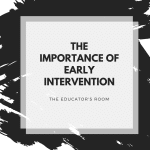It’s no secret that there are more birthdays in August, September, and October than any other month. In fact, LiveScience’s 2006 study has only become more cemented by our culture and propensity for the late summer and early fall birthdays. There are many factors related to the cause of that trend, but the greatest overall effect is the parents’ decision on when to send their child to Kindergarten. And, asking any parent whose child is 4 or 5, it is a very difficult decision to make.
Here are 10 things – from an educator’s perspective – that parents should consider when making that impactful choice:
1.What is the school’s policy on Kindergarten?
Forty-three states make the call on when students can or cannot enroll in a specific grade, and 25 of them (and Washington D.C.) choose that date as a September one. Nine choose the date before (Aug. 31st) or after (Oct. 1) that month while 7 of the states permit the school boards to set the limit. Find out where your cut-off is here.
2.Are you pressed for money?
The sad fact of the matter is daycare costs are expensive, and public school costs are the same whether you have a child there or not. On the other hand, if you plan on sending your child to private school, you may need to save for tuition. Financial decisions should rarely dictate your child’s education, but for some families, they don’t have the wiggle room.
3.In comparison to others, where would you rank your child?
What should ultimately drive your decision is your child’s skill set. If you’re honest with yourself (or need a third-party to let you know), ask where your child ranks in comparison to his/her peers, and other things, such as:
-Can your child stay seated and pay attention for more than 5 minutes?
-Can they write their letters and count their numbers?
-How is their vocabulary?
-Do they know how to spell some words?
-Do they have fine-motor skills (such as holding a pencil, cutting paper, buttoning clothes, etc.)?
-Are they creative?
-Can they read?
-Do they know their phone number?
-Can they follow simple, two-step directions?
-Does your spouse feel the same way?
Saying “yes” to all these isn’t a requirement, but the more you affirm, the more you should look towards early advancement. More academic considerations can be found at Parent Magazine and also at Education.com.
4.How well does your child get along with others?
The most unsung part of this analysis is your child’s social intelligence. There are many students who are advanced intellectually at an early age but severely struggle to maintain peer relationships, let alone friendships. Can your child share without melting down? Are they shy or outgoing? Do they have compassion and empathy?
5.Is your child mature enough?
This one comes down to a pure parental opinion, but you must wonder if you see your child as a leader or as a follower. Stop and ponder whether they are independent and self-confident enough for you to walk away and leave them to their Kindergarten teacher on the first day or, conversely, what they’ll think if their friends go to school on their first day and your child doesn’t.
6.Does your child require special education services?
For some children with special needs, the sooner they can start services, the better they’ll be helped and the better they’ll be.
7.Do you think holding them a year could help or hurt?
Malcolm Gladwell’s 2008 book Outliers study concluding the most successful hockey players being older than their peers has certainly caused parents to hesitate to send their children early. This, many mother blogs, and other studies have pushed parents to enroll later – especially if you’re hoping to have an athlete. However, other studies by the Wall Street Journal, Slate, others have countered and pushed back.
8.What do parents you admire think?
There are many seasoned parents to tap into – your friends, your neighbors, your child’s peers, and, of course, your own parents and in-laws – that will have their own opinions. While they may (too) often offer them without solicitation, be proactive about this one and ask for their advice. Jot down notes. Help it to inform your decision later. We’re not parenting on an island here, folks!
9.Think about the long-term.
What will the impact be on going to school at age 17? Or 19? Do sports have a role in this? Does adding another year of earning at a young age (graduating college at 21 instead of 22) help or hurt?
10.Don’t cause undue stress.
For yourself, your spouse, or for your child, don’t make a decision that will add a burden to the family. This especially rings true when you realize there is no “one-size-fits-all” decision in this process. In the end, the most important time component and the teacher is you, the parent. If you’re stressed in letting them go early or holding them too long, admit that to yourself. The child, regardless the age, needs a happy, healthy home to return to after Kindergarten. They also need to have fun and to learn.






